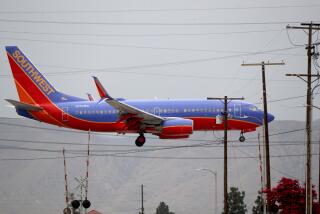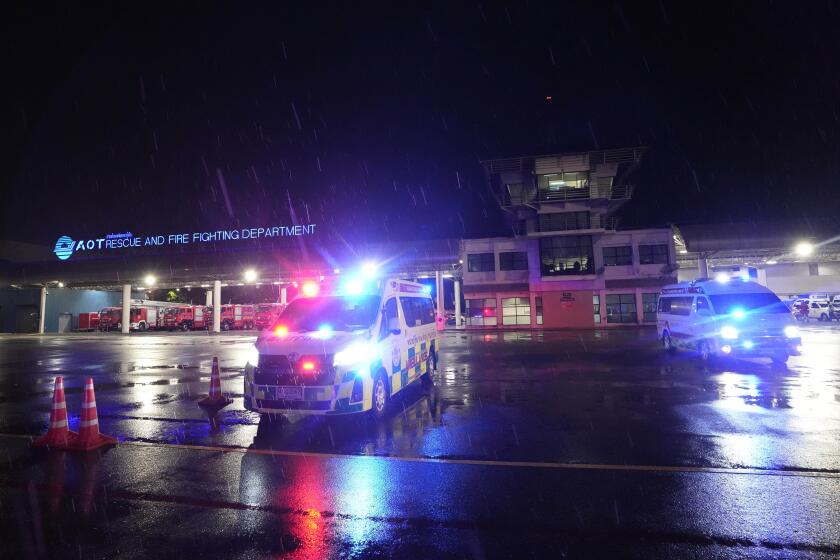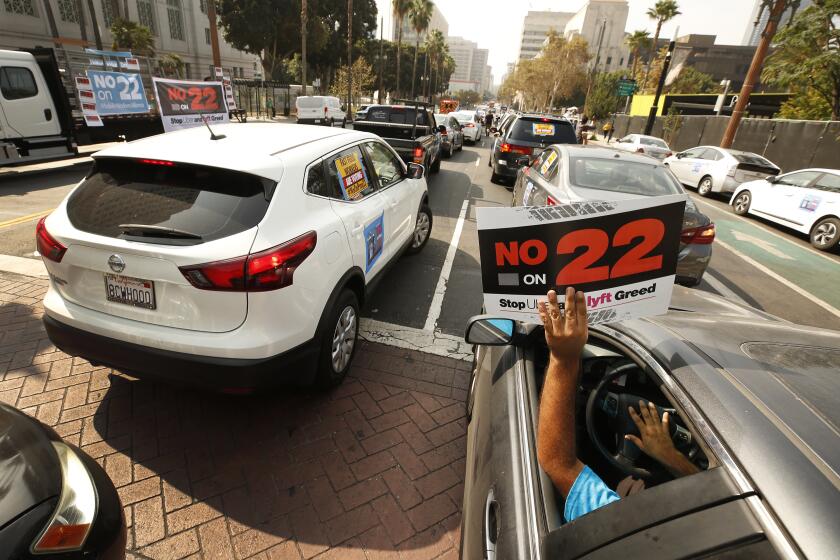Cruise industry adopts a passenger bill of rights
After months of negative publicity surrounding broken-down cruise ships and fed-up passengers, the cruise industry’s trade group announced the adoption of a passenger bill of rights.
The 10-item list specifically addresses issues that might arise if a ship suffers an emergency or mechanical failure. The Cruise Lines International Assn., with input from member lines, adopted the list after a push from Sen. Charles E. Schumer (D-N.Y.).
David Peikin, the trade group’s public affairs director, said all 26 North American member cruise lines have adopted the bill, and members outside North America will follow suit. He said the rights will become part of passengers’ contracts of carriage and will be legally enforceable.
In March, Schumer suggested that the cruise industry adopt guarantees similar to the airline passenger bill of rights “in response to a string of horrifying and dangerous incidents aboard international cruise ships.”
The Carnival Triumph was left powerless at sea after a fire in February. In the month that followed, three other Carnival Cruise Lines ships had mechanical or steering issues, including one that required passengers to be flown home from St. Maarten.
On Monday, a fire that broke out aboard a Royal Caribbean ship did enough damage that the rest of the cruise was canceled. More than 2,200 passengers were being flown from the Baha¿mas to Baltimore, where the trip began. There no injuries reported and passengers were given a full refund.
In announcing the list, Peikin said, “We agreed with Sen. Schumer’s recommendation that an explicitly stated ‘passenger bill of rights’ enumerating specific practices regarding passenger comfort and care was a good way to openly communicate the industry’s high standards and provide a clear level of accountability.”
The list includes:
•The right to disembark a docked ship if essential needs aren’t able to be addressed on board.
•The right to a full refund if a trip is canceled because of mechanical problems or a partial refund for trips that are cut short.
•The right for passengers to get timely updates about itinerary changes if a mechanical failure or emergency disrupts a trip, as well as updates on attempts to deal with mechanical problems.
•The right to transportation to the scheduled final port or a passenger’s home city if a cruise ends early because of mechanical issues.
•The right to a place to stay if passengers must disembark and stay overnight at an unscheduled port.
Other guarantees involve crew training in emergency and evacuation procedures; having professional emergency medical attention available on oceangoing ships, and emergency power if a generator fails. The list will be included on each line’s website, which will also feature toll-free phone lines for questions.
Miami maritime attorney Charles Lipcon, who represents passengers and crew in claims against cruise lines, called the measure “a step in the right direction.”
“No question about it, the cruise lines have recently dropped the ball I think in a very, very large way,” Lipcon said. “And if they carry through on this, I think it’s very good.”
He added: “The missing element here, the really important thing that’s not really being discussed, is a crew member bill of rights.”
The Associated Press reported that Schumer called the passenger bill of rights “a step in the right direction towards increased accountability for the cruise industry and ensuring the safety and well-being of its passengers.”
Schumer told the AP that he still has “many remaining questions, both on the content and how the bill of rights will be enforced. I will be asking the industry to respond to a set of detailed questions, and will continue to insist on changes to ensure the safety and well-being of their passengers.”
Sampson writes for the Miami Herald/McClatchy.






